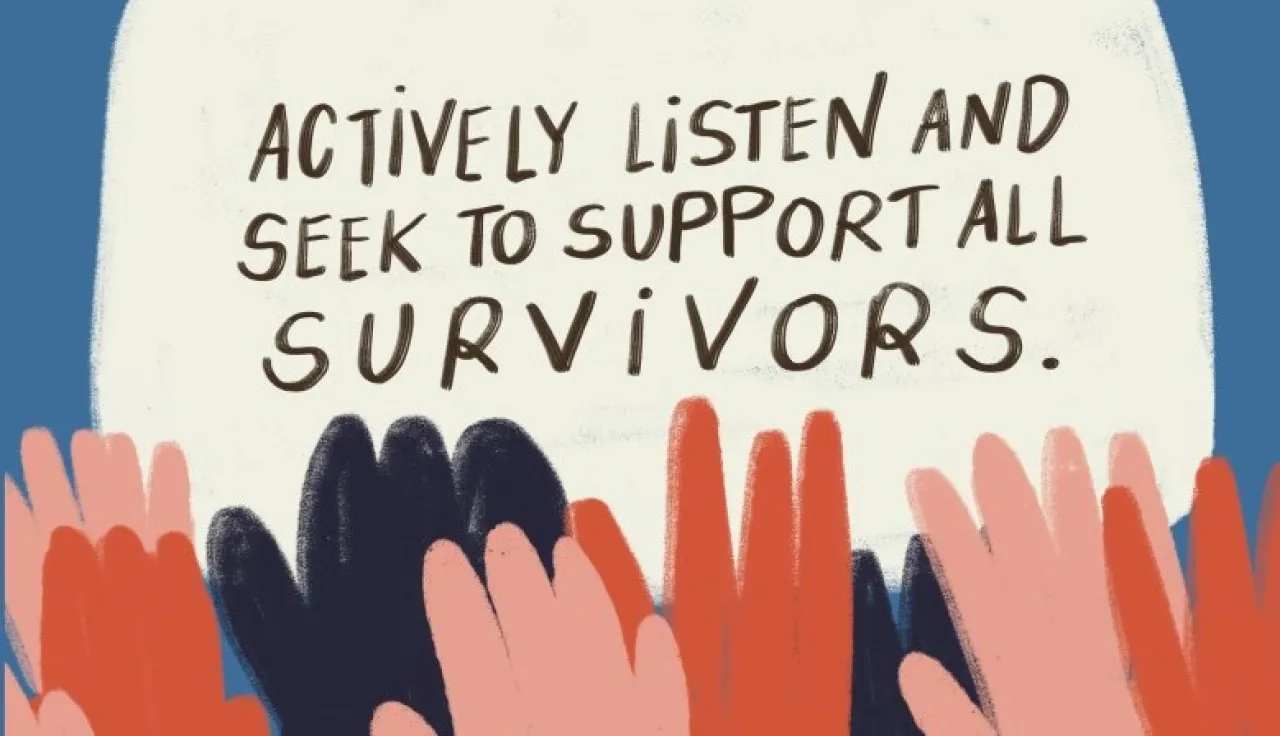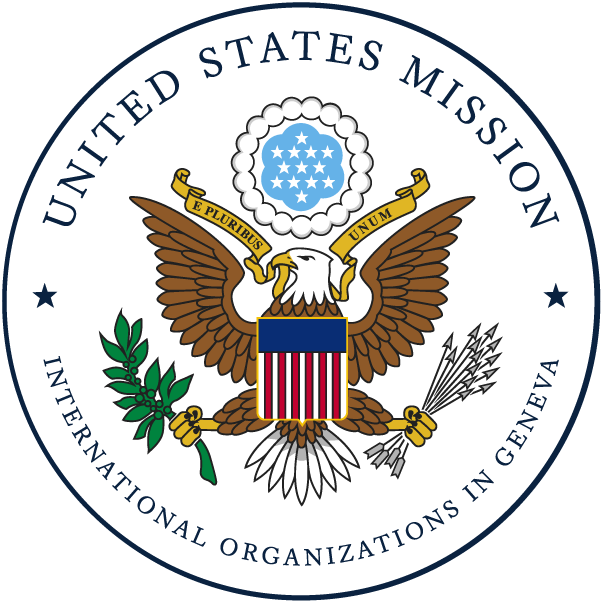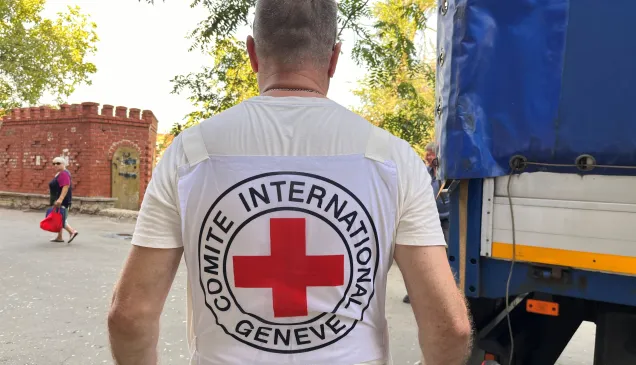ICRC campaign on the international day for the elimination of sexual violence in conflict

On the occasion of the International Day for the Elimination of Sexual Violence in Conflict (19th of June), the International Committee of the Red Cross (ICRC) will be supporting the collaboration between Swiss artist and psychotherapist, Franziska Greber, the International Red Cross and Red Crescent Museum, the United Nations office in Geneva and the City of Geneva, with an artistic installation centered on the issue of Sexual Violence in Conflict: its negative impact, the experiences and voices of survivors, ultimately calling for its prevention and eradication. The installation consists of two pieces:
APART

The APART installation will be hosted at the Museum from June 1st until July 3rd in its FOCUS space. Audiovisual material about sexual violence in conflict will also be displayed, including material from the SEMA Network (the Global Network of Victims and Survivors to End Wartime Sexual Violence). Additionally, and every Friday during June from 15.30 pm to 17.30 pm, one member of the ICRC addressing sexual violence team together with the artist will be present in the Museum to engage in conversations with the visitors.
UPROOTED

The ICRC, in collaboration with Franziska Greber, the United Nations office in Geneva, and the City of Geneva, bring to the public the installation UPROOTED; two uprooted dead trees will be placed in Place du Rhône and in Palais des Nations respectively. Instead of the treetops, irritating, blood-red roots invade the sky. They stand for all the persons whose human dignity and integrity have been torn down and violated by sexual violence in conflict.
* The installation at Place du Rhône is no longer available. You may view the remainder of the exhibit at Palais Des Nations (Ariana Park) *
In view of the above exhibitions, the ICRC will also be organizing the following events:
- June 17, 13.00 – 15.00; Henry Dunant room, International Red Cross and Red Crescent Museum:
Panel discussion: NOT an inevitable consequence of war: Survivors, artists, governments and international organizations come together to discuss conflict related sexual violence.
Welcome/Opening statement: Peter Maurer, President of the International Committee of the Red Cross
Opening Remarks: Pascal Hufschmid, Executive Director of the International Red Cross and Red Crescent Museum
Franziska Greber, Artist and Psychotherapist
Moderator: Cordula Droege, Chief Legal Officer and Head of Law, International Committee of the Red Cross
Panellists:
Survivor of conflict related sexual violence and member of the SEMA Network, the Global Network of Victims and Survivors to End Wartime Sexual Violence.
Monica Ferro, UNFPA, Director Geneva office.
Michel Anglade, Save the Children (Director and UN Representative, Geneva Advocacy Office).
US Mission to the UN and other International Organizations in Geneva
The panel will take place in person and audience participation is limited to 80; online participation however is open. The discussion will be livestreamed through this link NOT an inevitable consequence of war - YouTube and on the Museum's Facebook page. Register for the in person event here. - June 23, 15.00 – 16.30; Movie screening in the Henry Dunant room of the Museum
SEMA (official movie) – National Movement of Survivors of Sexual Violence in DRC, in partnership with SEMA network (supported by the Dr. Denis Mukwege foundation,).
The movie will be introduced by the ICRC and SEMA network and will be followed by an open discussion based on the requests of the visitors. Invitations will be sent out by the ICRC.
Read about ICRC's work to address sexual violence
Despite clear legal prohibitions, sexual violence remains widespread and prevalent during armed conflicts and other situations of violence, as well as in detention. It occurs in various contexts and has grave humanitarian consequences. Sexual violence is often utilized as a tactical or strategic means of overwhelming and weakening the adversary, whether directly or indirectly, by targeting the civilian population.
Sexual violence is rarely an isolated issue. It is usually part of a pattern of violence linked to other violations of international humanitarian law, such as torture, killings, looting, child recruitment or destruction of property. When linked to situations of conflict, it can exacerbate existing sexual and gender-based violence – such as marital rape and child marriage. These factors may also lead to the emergence of new trends or patterns, such as survival sex and trafficking for the purposes of sexual exploitation or abuse.
As an impartial organization, the ICRC supports victims/survivors of sexual violence based on humanitarian needs. It considers all information shared by or collected from multiple sources, including the victims/survivors themselves and local institutions and service providers working with them or their communities. It also looks at the available capacities; the possible causes or drivers of sexual violence; vulnerability factors and the extent to which those vulnerabilities are likely to be exploited. The latter is crucial for identifying groups with a higher risk of exposure to sexual violence and may include such identity factors as: sex; age; psychological, intellectual, sensory and physical impairments; sexual orientation, gender identity and gender expression (SOGIE); and status (e.g. displaced people, detainees, migrants). The ICRC may focus on addressing the needs of groups who, according to statistics, are targeted more frequently, such as women and girls; it also responds to the needs of men, boys and lesbian, gay, bisexual, transgender and intersex people.
We combine programmes, modes of action and activities to address sexual violence, with a view to eliminating it and building communities' resilience in the face of it. Given the destructive and wide-ranging consequences that sexual violence has on individuals, the ICRC implements a survivor-centered response to meet the multiple needs of victims/survivors of sexual violence in a holistic and coordinated manner. The ICRC also works to create a conducive environment – at the community, local, national and international levels – for preventing sexual violence. It seeks to change patterns of behavior and decision-making; to persuade and help the authorities to improve legal frameworks; to mitigate people's exposure to risks of sexual violence; and to help communities develop or reinforce their coping mechanisms, also by using a gender-sensitive understanding of the issue. Consistent with the "do no harm" principle, the ICRC implements its activities to address sexual violence as part of its broader efforts to assist and protect people affected by armed conflict and other situations of violence, and those in detention settings, to avoid labelling and the social stigmatization of victims/survivors.
Read the Museum's statement about the installation
Le Musée international de la Croix-Rouge et du Croissant-Rouge (MICR) pose une question centrale : en quoi l'action humanitaire nous concerne-t-elle tou·te·s, ici et maintenant ? Pour y réfléchir avec nos publics, nous invitons artistes, partenaires culturel·le·s et milieux de la recherche à s'interroger avec nous sur l'histoire, les principes et les défis de l'action humanitaire.
Attentifs·ves à la diversité des voix que nous accueillons, nous nous positionnons comme une plateforme de réflexion et de débat. En 2021/2022, nous inaugurons notre premier cycle thématique annuel : « Genre & Diverstié ». Associé·e·s à de nombreux·ses partenaires issu·e·s d'horizons culturels différents, nous explorons ce thème sociétal et imaginons, ensemble, ce que serait un musée féministe, inclusif et engagé.
Dans ce cadre, nous accueillons le Comité international de la Croix-Rouge (CICR) au Musée. À l'occasion de la Journée internationale pour l'élimination de la violence sexuelle dans les conflits le 19 juin et pendant tout le mois, le CICR partage son expertise en matière de lutte contre la violence sexuelle, met en lumière les voix des survivant·e·s et met l'accent sur la prévention.
Ensemble, le Musée et le CICR présentent UpRooted and Apart, une œuvre de l'artiste et psychothérapeute suisse Franziska Greber. A travers les expériences et les voix de survivant·e·s, elle aborde l'impact de la violence sexuelle en temps de conflit pour contribuer à sa prévention et à son éradication.
UpRooted and Apart consiste en trois éléments : une installation dans l'espace FOCUS du Musée et deux arbres de 8 mètres à Genève, l'un dans le parc des Nations Unies, l'autre à la place du Rhône. Ensemble, ces trois éléments forment une œuvre cohérente. Les arbres sont présentés par le CICR en collaboration avec l'Office des Nations unies à Genève et la Ville de Genève.
The International Red Cross and Red Crescent Museum asks a central question: how does humanitarian action concern us all, here and now? In order to ponder this question with our audiences, we invite artists, cultural partners and researchers to join us in examining the history, values and challenges of humanitarian action.
Attentive to the diversity of the voices we welcome, we position ourselves as a platform for reflection and debate. In 2021/2022, we are inaugurating our first annual thematic cycle: "Gender & Diversity". In association with many partners from different cultural backgrounds, we explore this societal theme and imagine, together, what a feminist, inclusive and committed museum could be.
In this context, the Museum welcomes the International Committee of the Red Cross (ICRC). On the occasion of the International Day for the Elimination of Sexual Violence in Conflict on 19 June and during the entire month, the ICRC is sharing its expertise on addressing sexual violence, highlighting the voices of survivors and placing the spotlight on prevention.
Together, the Museum and the ICRC present UpRooted and Apart, a work by Swiss artist and psychotherapist Franziska Greber in the FOCUS space of the Museum. Through the experiences and voices of survivors, she addresses the impact of sexual violence in times of conflict, calling for its prevention and eradication.
UpRooted and Apart consists of three elements: an installation in the FOCUS space of the Museum and two 8-meter trees in the city of Geneva, one in the United Nations parc and the other at Place du Rhône. Together, these three elements create a consistent body of work. The trees are presented by ICRC in collaboration with the United Nations Office at Geneva and the City of Geneva.
Read the UN Statement
"Sexual violence in all its forms is a blight on humanity and needs to be actively combatted. Sexual violence in conflict is an even more hideous crime that hits innocent and vulnerable, people, already traumatized by conflict, taking away their dignity and inflicting unimaginable suffering, not only to on the victims, but also to on their families and communities. Sexual violence in conflict is unacceptable and must be eradicated.
The United Nations is fully committed to fight this scourge, particularly through the UN Action Against Sexual Violence in Conflict, or "UN Action", a network of 21 UN entities bringing together the collective experience and institutional capacity of the whole UN system.
As Secretary-General Guterres said, "Let's resolve to uphold the rights and meet the needs of all survivors, as we work to prevent and end these horrific crimes".
Together with the International Committee of the Red Cross, UN Geneva is proud to commemorate the International Day for the Elimination of Sexual Violence in Conflict with the installation of Franziska Greber's UPROOTED and APART exhibition in the Palais des Nations to help bring crimes of sexual violence in conflict out of the shadows."
Tatiana Valovaya, Director-General, UN Geneva
Read the Artist statement
UPROOTED and APART– TWO INSTALLATIONS AGAINST SEXUAL VIOLENCE IN CONFLICT
Franziska Greber, Artist-Psychotherapist
THE CONTEXT
Sexual violence in conflict is a direct violation of International Humanitarian Law. It leaves not only victims and survivors of conflict-affected countries with trauma, but also the affected families, communities and wider society. But the trauma has even further-reaching effects, including perpetrators and their wider communities, and countries themselves; sexual violence in conflict has a global dimension. Dealing with it is not only unavoidable, but imperative. This is the only way we can achieve a differentiated and tailored approach. Sexual violence in conflict is primarily directed against women, but also against children and men. Their suffering shall be visible and their voices shall be heard.
THE INSTALLATIONS
Artists also confront societal issues such as discrimination and violence. Through their work, they can enable the visibility of hidden, repressed or even forbidden content, as well as emphasize demands for prevention, intervention and aftercare. Art thus uses its power to contribute to sensitization, reorientation and new directions.
With the connection between art and human rights - as culture of a lively and critical discourse - Franziska Greber lays the substantive and structural foundation for her various art projects. Cooperation, transdisciplinarity and participation are the anchor and means of her artistic interventions, as in these installations, called UPROOTED and APART.
The two installations appeal to different senses of museum visitors and passers-by – 'Apart' in the museum and 'UpRooted' in the public space. They are intended to provoke thought and discourse: How do we encounter people affected by sexual violence in conflict? What help do we offer them? How do we position ourselves as a society? We are addressed not only as an audience, but also in our responsibility as knowers and doers.
'Apart' consists of two hemispheres. The lower one stands on the ground, the upper one seems to explode and topple away. A magma-like maw opens up in front of us. With its size, the installation almost fills the entire darkened room. The broken, battered world stands apart from the intact globe separated only by a barrier. 'Apart' involves both "splitting" and the art of survival - trauma and resilience.
Screens will show testimonials from SEMA (a global network of victims and survivors of sexual violence in conflict), videos with spoken and sung texts, and also information by the International Committee of the Red Cross (ICRC). The connection to reality and practice is a central concern of all those involved. This includes the planned accompanying events, guided tours and discussions.
'UpRooted' is an outdoor installation with two tall (dead) trees in outdoor spaces in Geneva. But instead of treetops, irritating, blood-red roots penetrate the sky. Each of these trees, stuck upside down into the ground, has a distinctive shape. They stand for all people whose human dignity and integrity have been torn down and violated by sexual violence in conflict. The uprooting of the trees also symbolizes the disregard and loss of values, the rule of law, tradition, security and international law.
Effective action requires cooperation, strong networks and participation of the survivors. The two trees are also a metaphor for the collaboration needed to achieve this. Gender equality and the rule of law are essential factors to strive for at every level to prevent and eliminate sexual violence in conflict.
The Exhibition is supported by the US mission.
Read the SEMA Network statement
SEMA, the Global Network of Victims and Survivors to End Wartime Sexual Violence, currently represents survivors of conflict-related sexual violence from over 20 countries ranging from Africa and South America to the Middle East and Europe. Working together, these survivors draw global attention to the continued use of sexual violence as a weapon of war and call for the changes needed to end the violence and achieve justice.
SEMA members join key international and national discussions on peace and security. They influence policies and programmes, by advocating for changes in how we address sexual violence in conflict.
The SEMA network enables its members to share experiences, to learn directly from one another, sharing best practices. Members support one another and strengthened are better able reach out to those still suffering in isolation. Every survivor in this network knows the weight and cost of the stigma they face, and this awareness continues to fuel their resolve to work in solidarity to break the silence, improve victims' access to care, and end the impunity of perpetrators.
In 2017, survivors of sexual violence from 15 countries met in Geneva, at the first of a series of international survivor retreats. From the outset, the idea of working together generated enthusiasm and strong support from survivors. Their powerful call was clear: "Nothing about us, without us." Today, their network brings together survivors who work with frontline organizations supporting them in their healing and advocacy journeys. By coming together and speaking out, they shift the shame onto the perpetrators, break the silence and the stigma, and call on the international community to take action and abide by its commitments to end the use of sexual violence in conflict.
Once victims, now survivors these women have expertise built on direct, lived experience. SEMA members want to themselves build awareness about the reality and consequences of conflict-related sexual violence worldwide. They want to be part of solutions that help reconstruct communities around the world.
SEMA members raise awareness about the reality, causes and consequences of wartime sexual violence worldwide, maintain a safe international platform for survivors to come together and shape the narrative on wartime sexual violence, promote the holistic model of care for victims, integrating psycho-social, legal and livelihood development support with medical care and advocate for the abolition of sexual violence as a weapon of war.
The installations are supported by the US mission to the UN and other international organizations in Geneva.



